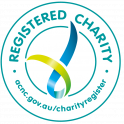“Parents and teachers often say they have problems controlling children with ADHD, and it could be that when the children can’t express themselves well, when they hit emotional difficulties, they may not be able to control their emotions, They have an outburst rather than communicating with the parent, teacher or the other child.”
In research published in Nature Mental Health, Cambridge scientists found that as many as one in two children with ADHD show signs of emotional dysregulation, and that Ritalin, the commonly-prescribed drug to help the condition, appears to be less effective at treating this symptom.
ADHD affects around one in 14 young people under the age of 18 and in around half of these cases it persists into adulthood. The condition causes problems including hyperactivity, impulsivity and a difficulty to focus attention.
It has become increasingly clear that some people with ADHD also have self-control problems, affecting their ability to regulate emotions. For example, one in 50 (2.1%) children with a diagnosis of ADHD also have a mood disorder, such as depression, while more than one in four (27.4%) have an anxiety disorder. Many also have verbal or physical outbursts due to an inability to regulate their emotions.
These problems were thought to be a result of other symptoms associated with ADHD, such as problems with cognition and motivation. But the study shows that emotional dysregulation occurs independently of these.
The researchers examined data from the ABCD Study, a large longitudinal cohort that tracks the brain development and mental health of children from across the United States. Data on ADHD symptoms was available for just over 6,000 of these children, allowing the researchers to attribute a score to each individual indicating their likelihood of having ADHD.
A team of scientists from Fudan University in Shanghai, China, and the University of Cambridge identified 350 individuals within the cohort who had high symptom scores that met the clinical cut-off for ADHD. Two-thirds (65.7%) of these were male.
Parents or guardians of the children and adolescents in the cohort had previously completed a series of questionnaires, which included questions relating to emotional behaviour, for example:
- When my child is upset, he/she has difficulty controlling his/her behaviours.
- When my child is upset, he/she knows that he/she can find a way to eventually feel better.
- When my child is upset, he/she starts to feel very bad about him/herself.
The researchers found that half (51.4%) of the individuals in the high-symptom group showed signs of emotion dysregulation and this was independent of cognitive and motivational problems.
Among children with only low-ADHD symptoms at both ages 12 and 13 years, those with high scores of emotion dysregulation at age 13 years were 2.85 times more likely to have developed high-ADHD symptoms by age 14 years compared with those with a low score of emotion dysregulation.
When the researchers examined brain imaging data available for some of the participants, they discovered a particular region of the brain known as the pars orbitalis that was smaller among children who scored highly for ADHD and emotional problems. (The pars orbitalis is at the front of the brain and plays an important role in understanding and processing of emotion and communication as well as inhibitory control over behaviour, which may explain some of the behaviours seen in ADHD.)
Professor Barbara Sahakian from the Department of Psychiatry at the University of Cambridge and a Fellow of Clare Hall, said, “The pars orbitalis is a well-connected part of the brain and if it hasn’t developed properly it might make it difficult for individuals to control their emotions and communicate with others appropriately, especially in social situations.
“Parents and teachers often say they have problems controlling children with ADHD, and it could be that when the children can’t express themselves well, when they hit emotional difficulties, they may not be able to control their emotions. They have an outburst rather than communicating with the parent, teacher or the other child.”
Professor Sahakian hopes that acknowledging emotion dysregulation as a key part of ADHD will help people better understand the problems the child is experiencing. This could lead to using effective treatments for regulation of emotion, such as cognitive behavioural therapy.
The findings may also point to potential ways to help the child manage their emotions, for example, by using cognitive behavioural techniques to learn to stop and think before they react and to express their feelings verbally, or use techniques such as exercise or relaxation to calm themselves or alleviate symptoms of depression and anxiety.
This may be particularly important as the researchers found that Ritalin, the drug used to help manage ADHD symptoms, does not appear to fully treat symptoms of emotion dysregulation. Identifying the problem earlier would allow for alternative, more effective interventions to help the child better manage their emotions, potentially helping the individual in adulthood.
Professor Qiang Luo from Fudan University and a Life Member at Clare Hall, Cambridge, said, “If you’re having trouble controlling your emotions, this can lead to problems with social interactions, which further exacerbates any depression or anxiety that you might have. It also might mean that you’re saying things or doing things that exacerbate a situation rather than calming it down. Teaching vulnerable individuals from an early age how to manage your emotions and express yourself could help them overcome such problems further down the line.”
While it is not clear exactly what causes these problems in the first place, the researchers found signs of a link to possible dysfunction of the immune system, with individuals who exhibited signs of emotion dysregulation showing higher percentages of certain types of immune cell.
Professor Sahakian added, “We already know that problems with the immune system can be linked to depression, and we’ve seen similar patterns in individuals with ADHD who experience emotion dysregulation.”
The research was supported by the National Key Research and Development Program of China, the National Natural Science Foundation of China, the Program of Shanghai Academic Research Leader and the Shanghai Municipal Science and Technology Major Project.
Better Place Australia family mental health support
Better Place Australia Family Mental Health Support Service (FMHSS) is an outreach program across Melbourne. It is also available from Better Place Australia Frankston office. It supports children and young people who are at risk of, or showing signs of developing difficulties with their mental health. The service also supports their families and caregivers to provide early intervention with the goal of improving mental health outcomes. This is a free mental health service to families in the Frankston & Mornington Peninsula local government areas. Better Place Australia also provides child counselling in Melbourne at numerous Better Place Australia locations.
Contact Better Place Australia
For more details and to make an enquiry, click here or go to the Better Place Australia mental health support page.
Materials provided by University of Cambridge. The original text of this story is licensed under a Creative Commons Attribution-NonCommercial-ShareAlike 4.0 International License. Note: Content may be edited for style and length.
Journal Reference:
- Wenjie Hou, Barbara J. Sahakian, Christelle Langley, Yuqing Yang, R. A. I. Bethlehem, Qiang Luo. Emotion dysregulation and right pars orbitalis constitute a neuropsychological pathway to attention deficit hyperactivity disorder. Nature Mental Health, 2024; DOI: 10.1038/s44220-024-00251-z
Get Support
Please make an enquiry if you would like to book an appointment for one of our services. Alternatively, you can live chat with us during business hours.






